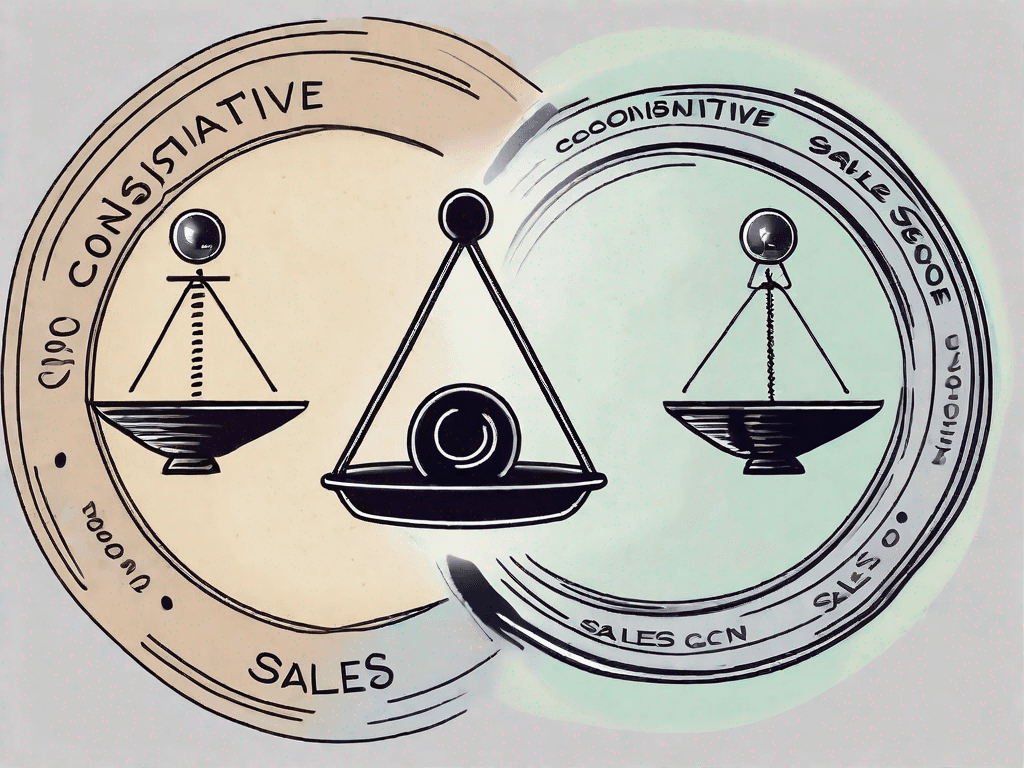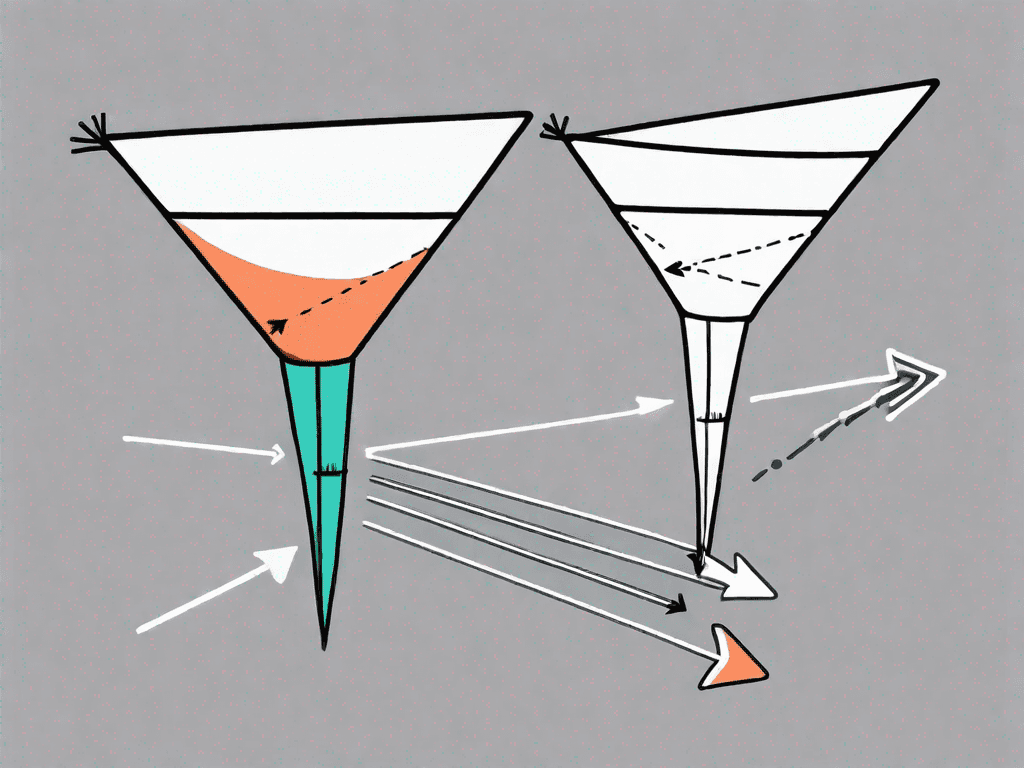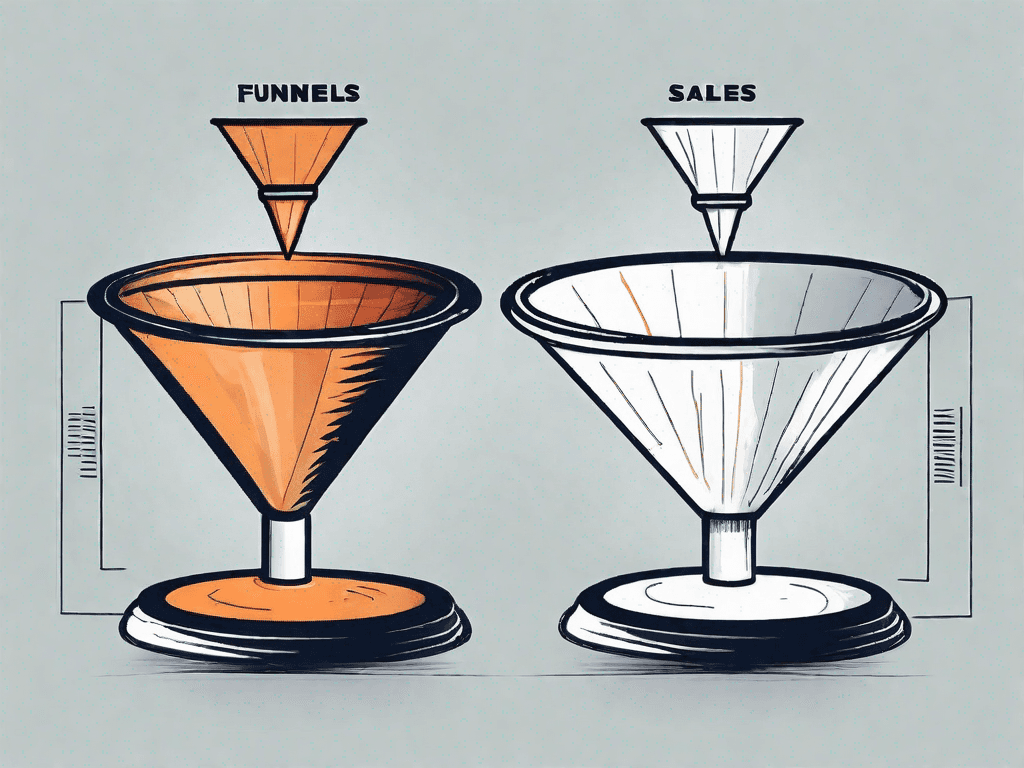
Sales Operations Manager vs Sales Analyst: What's the Difference?
In today's fast-paced business environment, there are numerous roles that contribute to the success of a sales team. Two key positions that often get confused are the Sales Operations Manager and the Sales Analyst. While they may sound similar, each role carries distinct responsibilities and skill sets. In this article, we will explore the differences between a Sales Operations Manager and a Sales Analyst and provide examples to illustrate their unique functions. So, let's dive in
Defining Sales Operations Manager and Sales Analyst
1.1 What is a Sales Operations Manager?
A Sales Operations Manager is a strategic leader in a sales organization who focuses on optimizing sales processes, improving efficiency, and supporting the sales team in achieving their targets. They play a crucial role in collaborating with various departments, such as marketing, finance, and operations, to ensure seamless sales operations.
One of the key responsibilities of a Sales Operations Manager is to analyze sales data, identify patterns, and provide insights to drive informed decision-making. They are also responsible for developing and implementing sales strategies, forecasting sales performance, and managing sales territories.
In addition to these core responsibilities, Sales Operations Managers often act as a bridge between the sales team and other departments. They facilitate effective communication and coordination, ensuring that the sales team has the necessary resources and support to meet their objectives. This may involve working closely with marketing teams to align sales and marketing strategies, collaborating with finance teams to develop accurate sales forecasts, or partnering with operations teams to streamline order fulfillment processes.
Furthermore, Sales Operations Managers are responsible for evaluating and implementing sales technology tools and systems. They assess the organization's needs, research available solutions, and make recommendations on the most suitable tools to enhance sales effectiveness. This may include CRM (Customer Relationship Management) systems, sales analytics platforms, or sales enablement software.
1.2 What is a Sales Analyst?
A Sales Analyst is an analytical professional who specializes in interpreting sales data and extracting valuable trends and patterns. They analyze key performance indicators (KPIs), sales metrics, market trends, and customer behavior to provide meaningful insights that help the sales team and the organization make data-driven decisions.
Moreover, Sales Analysts are skilled in creating reports, dashboards, and visualizations to communicate their findings effectively. They support the sales team in identifying areas of improvement, optimizing sales strategies, and tracking the success of sales initiatives.
However, the role of a Sales Analyst goes beyond just crunching numbers. They also play a critical role in conducting market research and competitive analysis. By studying market trends, customer preferences, and competitor strategies, Sales Analysts provide valuable information that helps the sales team identify new opportunities and stay ahead of the competition.
In addition, Sales Analysts often collaborate with other departments, such as marketing and finance, to gather relevant data and align sales objectives with broader organizational goals. They work closely with marketing teams to analyze the effectiveness of marketing campaigns, assess the return on investment (ROI), and identify areas for improvement. They also collaborate with finance teams to ensure accurate sales forecasting and budgeting.
Furthermore, Sales Analysts are proficient in using various data analysis tools and software. They are skilled in statistical analysis, data visualization, and predictive modeling techniques. By leveraging these tools, Sales Analysts can uncover hidden patterns, predict future sales trends, and provide actionable recommendations to drive sales growth.
What's the difference between a Sales Operations Manager and a Sales Analyst?
Now that we have a clear understanding of the roles, let's examine the differences between a Sales Operations Manager and a Sales Analyst.
While both roles revolve around sales data analysis, the Sales Operations Manager focuses on the strategic aspects of sales operations, whereas the Sales Analyst primarily deals with interpreting and communicating the insights derived from the data.
The Sales Operations Manager has a broader scope of responsibilities and actively contributes to developing sales strategies, managing territories, and optimizing overall sales efficiency. They work closely with the sales team, collaborating on forecasting, budgeting, and setting sales targets. Additionally, they are responsible for identifying areas for improvement in the sales process and implementing solutions to enhance productivity and effectiveness.
On the other hand, Sales Analysts are typically more specialized in analyzing sales data and generating actionable reports to guide the sales team's day-to-day activities. They dive deep into the data, using various statistical models and tools to identify trends, patterns, and opportunities. Their expertise lies in extracting meaningful insights from complex datasets and translating them into easily understandable reports and presentations.
Moreover, Sales Analysts play a crucial role in monitoring key performance indicators (KPIs) and providing regular updates to the sales team and management. They track sales metrics, such as revenue, conversion rates, and customer acquisition costs, to assess the effectiveness of sales strategies and identify areas for improvement. By analyzing market trends and competitor data, they also contribute to the development of competitive pricing strategies and product positioning.
While both roles require a strong analytical mindset and proficiency in data analysis tools, the Sales Operations Manager often possesses additional skills in project management, leadership, and strategic planning. They are responsible for overseeing the execution of sales initiatives, coordinating cross-functional teams, and ensuring alignment with overall business objectives.
In summary, the Sales Operations Manager and the Sales Analyst have distinct yet complementary roles within the sales organization. While the Sales Operations Manager focuses on the strategic aspects of sales operations and contributes to developing sales strategies, the Sales Analyst specializes in analyzing sales data and generating actionable insights to support the day-to-day activities of the sales team. Together, they form a cohesive unit that drives sales excellence and helps organizations achieve their revenue goals.
Examples of the Difference between a Sales Operations Manager and a Sales Analyst
2.1 Example in a Startup Context
In a startup context, a Sales Operations Manager would be responsible for designing and implementing a standardized sales process, managing the CRM system, and coordinating with other teams to streamline operations. Meanwhile, a Sales Analyst would analyze data to identify trends in customer acquisition, retention, and product performance, providing insights to help the Sales Operations Manager fine-tune strategies and allocate resources effectively.
2.2 Example in a Consulting Context
In a consulting firm, the Sales Operations Manager would work closely with the sales team and consultants to develop efficient sales methodologies, map out client engagement processes, and ensure smooth project execution. The Sales Analyst, in this scenario, would dive into client-specific data, evaluate pricing strategies, and identify opportunities for cross-selling or upselling, contributing to the firm's overall revenue growth.
2.3 Example in a Digital Marketing Agency Context
Within a digital marketing agency, the Sales Operations Manager would collaborate with the marketing team to align sales and marketing strategies, optimize lead generation processes, and establish performance metrics. Simultaneously, a Sales Analyst would analyze campaign data, evaluate conversion rates, and identify patterns in customer behavior to enable data-driven decision-making for the Sales Operations Manager and the sales team.
2.4 Example with Analogies
Suppose we compare the Sales Operations Manager to a pilot. The pilot ensures the smooth functioning of a flight, plans the journey, coordinates with air traffic control, and troubleshoots any operational issues. Similarly, the Sales Operations Manager ensures effective sales processes, collaborates with other departments, and makes critical decisions to optimize sales efficiency.
On the other hand, we can liken the Sales Analyst to an air traffic controller. The air traffic controller continuously monitors radar screens, analyzes data, communicates with pilots, and provides the necessary guidance and insights to ensure safe and efficient navigation. Likewise, the Sales Analyst analyzes sales data, communicates insights, and guides the sales team using data-driven recommendations.
Conclusion
In conclusion, while the Sales Operations Manager and the Sales Analyst roles share similarities in their focus on sales data analysis, their responsibilities and areas of expertise differ significantly. The Sales Operations Manager is a strategic leader who optimizes sales processes and collaborates with other departments, while the Sales Analyst provides insights and guidance based on their data analysis skills. Understanding these distinctions is vital for organizations seeking to build an efficient and data-driven sales team.
So, next time you come across these roles, you will have a clear understanding of how a Sales Operations Manager and a Sales Analyst contribute uniquely to the success of a sales team!


















































































































































